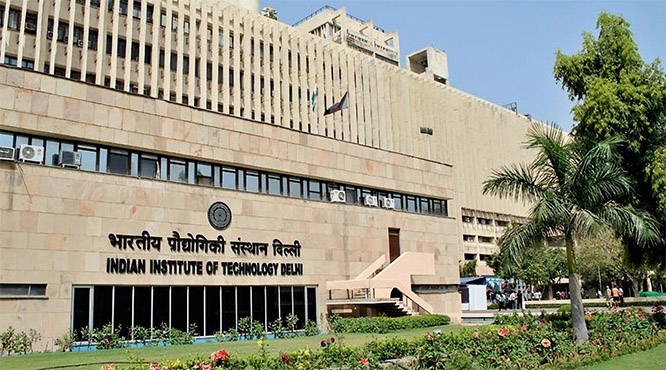
The Abu Dhabi branch of the Indian Institute of Technology-Delhi is set to start its first undergraduate courses in September — a milestone expected to kickstart the school’s further expansion in Gulf Cooperation Council countries.
The Indian Institute of Technology-Delhi is a public engineering institute in the Indian capital, one of 23 IITs operating across the country and offering undergraduate, postgraduate and doctorate-level programs.
Run by the Indian Ministry of Education, it is considered one of the best centers of excellence for training, research and science in India, and is globally ranked 45th in engineering and technology in the QS World University Rankings by Subject 2024.
The institute’s UAE branch is funded by the Abu Dhabi Department of Education based on an agreement with the Indian government signed in July 2023.
Currently hosted by Zayed University, the IIT-Delhi Abu Dhabi started its teaching program in January with a master’s course in energy transition and sustainability, which paved the way for full-fledged operations to be launched in the academic year 2024-25.
“The undergraduate program is a flagship program of the IITs and hence its launch is significant,” Prof. Shantanu Roy, director of the IIT Delhi-Abu Dhabi, told Arab News this week.
“We would like to reach out to international students in the GCC countries. We will also be rolling out our research programs shortly and would like to engage with partners in Abu Dhabi, UAE and the region. IIT-Delhi Abu Dhabi will serve as a meeting point between IIT Delhi and its long 60-plus years legacy in teaching and research, and partners and collaborators in the UAE and neighboring countries.”
The two upcoming undergraduate programs will have a batch of 30 students each. Most of the students will enter based on the institute’s new examination, which the director said was customized for the UAE.
“A significant number of Emirati students have registered ... We see many students in our outreach programs,” Roy said.
“Eleven out of 18 students in our inaugural master’s program in energy transition and sustainability are UAE nationals. They are doing very well, and we are proud of them.”
The offshore campus is a part of the UAE-India comprehensive economic partnership agreement that came into force in May 2022.
The UAE branch is the IIT’s first campus set up abroad.
“The opening of the IIT campus in Abu Dhabi is indeed a significant milestone,” Sunjay Sudhir, Indian ambassador to the UAE told Arab News. “Now, in September, the first bachelor of technology courses in computer science and energy will commence.”
He said that IIT operations would not only strengthen the institute’s global brand, but also Abu Dhabi’s position as a hub for high-tech and innovation.
“The IIT-Delhi campus will be an important part of the innovation ecosystem of this country,” Sudhir said. “We expect a strong linkage between the IIT-Delhi campus and other research teaching establishments and also industries.”






Comments
Add new comment